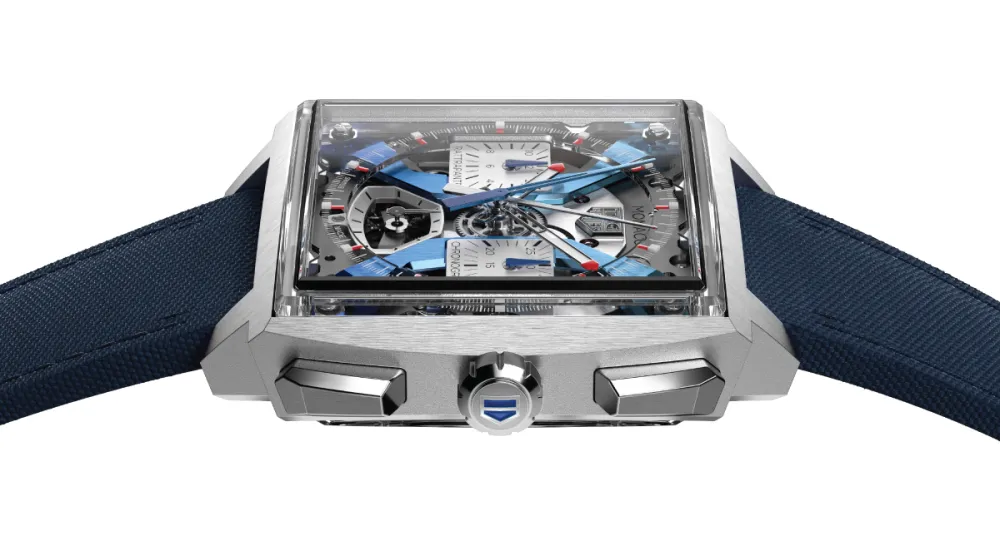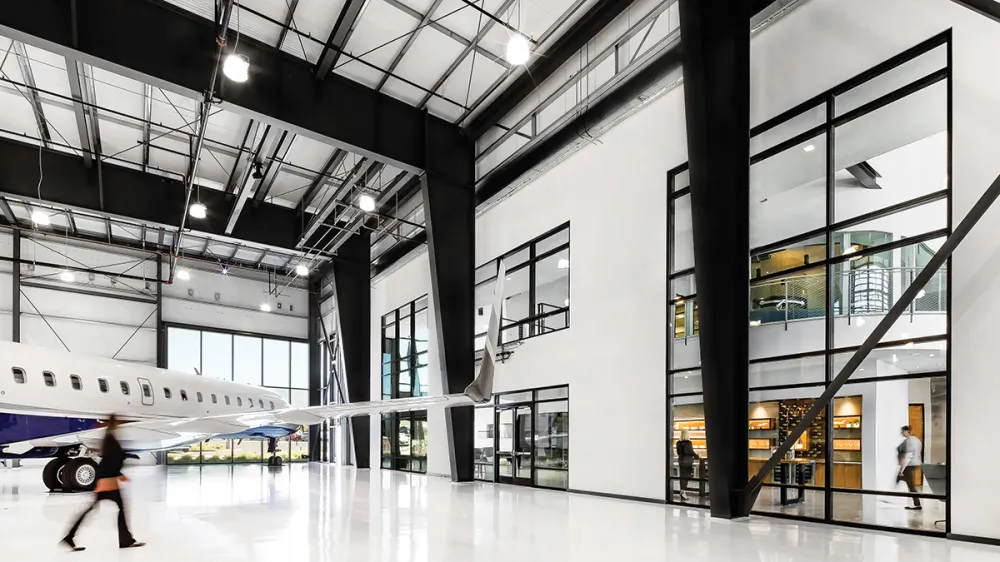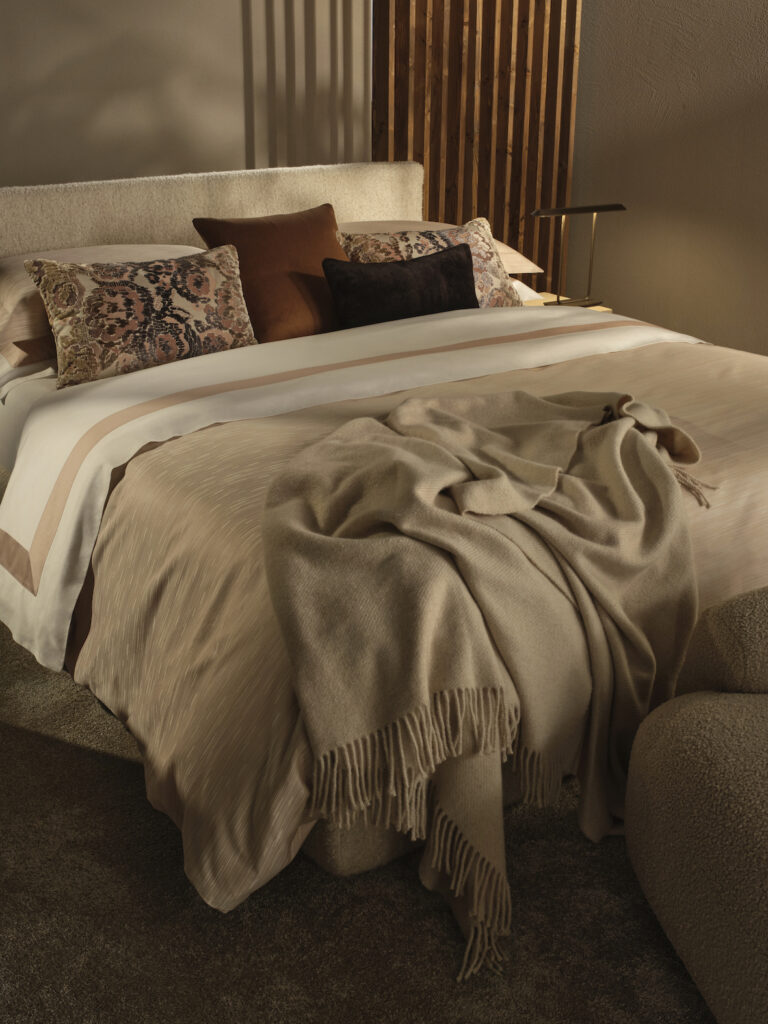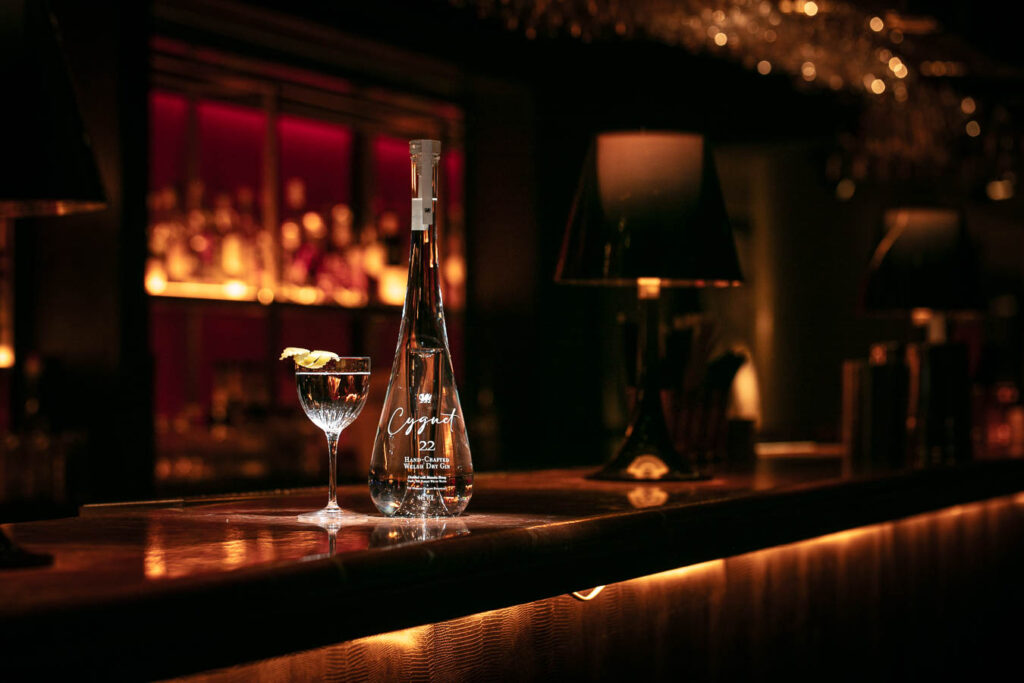The ultra-high-end timepiece clocks in at around €125,000 and is already sold out until the end of the year.
When TAG Heuer tapped Carole Forestier-Kasapi to be its director of movements in 2020, industry insiders knew big things were afoot at the mid-level sports-watch brand—she had long been a behind-the-scenes force in fashioning uber-complicated and creative timepieces at Cartier. Two years later, as a signal of what was to come, the company launched an attention-grabbing six-figure Carrera Chronograph Tourbillon with lab-grown diamonds integrated into the case. This year, it updated its legendary Monaco chronograph to add a split-seconds (rattrapante) function, an extraordinarily challenging and expensive complication that allows the user to time two events concurrently via separate mechanisms.
It’s Forestier-Kasapi’s first watch designed from infancy to completion for the brand—and more in line with TAG’s traditional ethos than its snazzier Carrera predecessor. “When we begin thinking about TAG Heuer, we think about the chronograph,” she tells Robb Report. “Secondly, why a rattrapante and not another complication for a chronograph? Because the rattrapante, for me, is the queen of chronograph complications.”
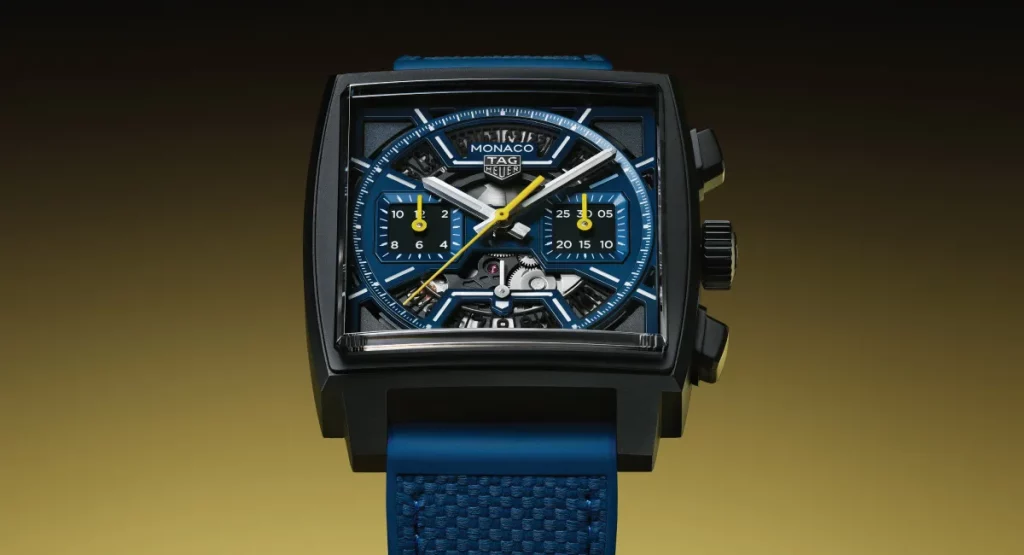
While certainly the main attraction, that exceptional engine isn’t the only reason this piece clocks in at around €125,000. The 41 mm by 15.2 mm titanium model, which comes in either a red or blue colorway, has sapphire-crystal glass on both the front and back, stretching across the frame for a more avant-garde feel (as well as a better view of the TH81-00 5hz movement). Growing, cutting, polishing, and coating the crystal alone takes four months.
The jazzed-up new Monaco was developed with Vaucher, a Swiss fine-movement maker that also produces high-end calibers for brands such as Richard Mille, Audemars Piguet, and Hermès, and is part of the Sandoz Family Foundation, which also owns Parmigiani.
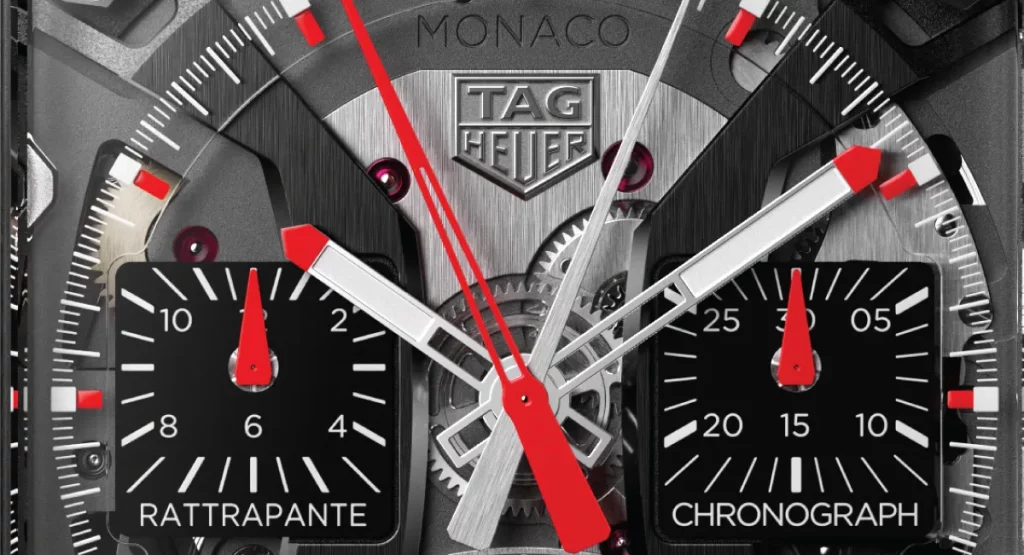
Not coincidentally, Parmigiani and its various companies are (at least at the time of publishing) for sale, with TAG Heuer’s owner, LVMH, rumored to be vying for the purchase with long-standing competitor Hermès. For now, though, TAG has no intention of moving production of all of its premium movements in-house. “If we can make something in-house that’s to the standard we require for the project, we’ll do it,” says Nicholas Biebuyck, TAG Heuer’s heritage director. “But at the same time, if we have an external partner—and Vaucher is the perfect example—who we can see is doing exceptional work and has an expertise that would take us a very long time to develop in-house, we are happy to use them. But let’s see what the future holds.”
For now, that future looks interesting indeed. So far (and so fittingly) TAG is off to the races: Production for the Split-Seconds Chronograph is already sold out until the end of the year.

